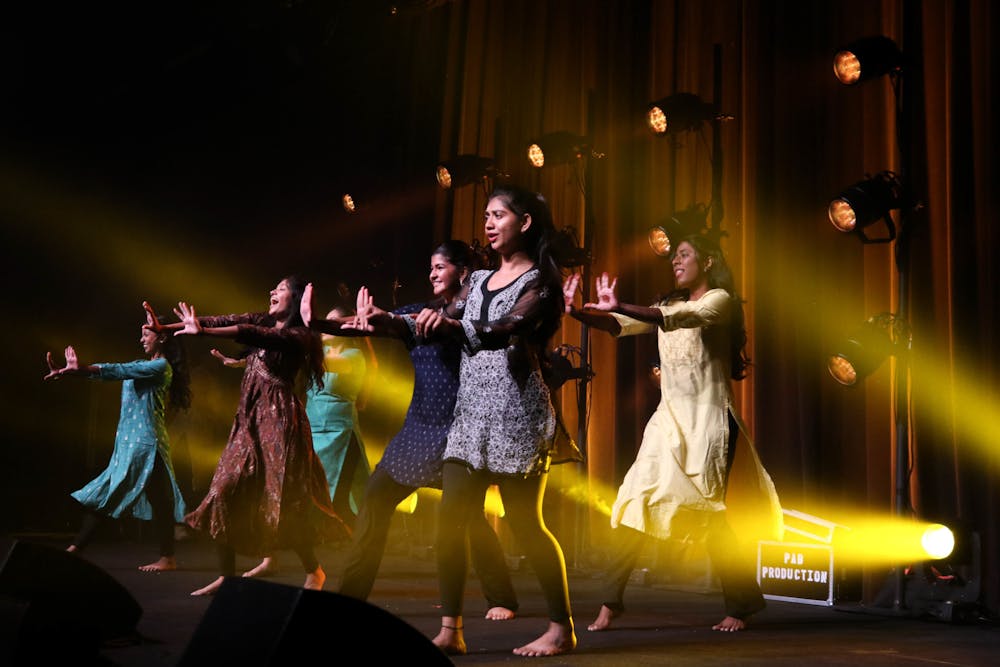This year, Halloween wasn't the only holiday being celebrated across ASU's campus. Many students also celebrated Diwali, or Deepavali in South Indian languages, starting on Oct. 31. To celebrate the Festival of Lights, lamps called diyas, or deepams, are lit. Traditional clothing, such as sarees, kurtas and lehengas, are worn.
Diwali explained
Diwali is a religious holiday that celebrates the victory of dharma over adharma, or good over evil. The holiday is celebrated among Hindus, Jains, Sikhs and Buddhists, although each religion has an interpretation on what the holiday means to them.
In ancient Hindu mythology, Diwali is the day that the god Rama returned to his kingdom with his wife Sita after she had been kidnapped and taken hostage by Ravana.
In contrast, Jains see the holiday as the final release of the god Mahavira, and Sikhs observe the holiday as a testament to the release of a famous guru from a Mughal prison. For some Buddhists, Diwali marks the day Emperor Ashoka converted to Buddhism in third century B.C. All sects celebrate the holiday through good food, parties and the lighting of the lamps.
Religious centers, like temples, will often have a display of fireworks to illuminate the night sky. Homes will be lit with candles and sweets are handed out to celebrate the day.
"We are cooking ... and then we dress up, we pray, and we do a puja at home," said Ritika Sharma, a master's student studying accounting and data analytics. "We burst (fire) crackers, a lot of crackers."
Diwali typically falls in the Hindu lunisolar months of Avani and Kartika, which are in the months of October and November.
Different regions of India celebrate the holiday differently, with North Indian states typically hosting a five-day festival to commemorate the defeat of Rama over Ravana. However, South India sees the holiday as the defeat of the god Krishna over Narakasura. There are different prayers in various regions, honoring different gods.
How ASU celebrates
For ASU students who celebrate the holiday, the festivities look different on campus than it does back home. Diyas may be harder to obtain and Indian sweets may have to be store-bought instead of homemade. However, students still find ways to celebrate on campus.
"The most important part of Diwali is celebrating it with people," said Nidhi Dattani, a master's student studying business analytics.
Student organizations, such as the Indian Student Association, have organized celebrations for Diwali on campus, surrounded by a large network of Indian students.
"We might know four or five people, but when an event of the scale is organized, I get to meet hundreds of people, and obviously they're all Indians, and they're missing the same thing as we are," Dattani said. "Making the connection more special and the celebration bigger."
International and Indian American students both see this holiday as something to celebrate with family and friends. But there are many events on campus to attend and celebrate with a larger community.
Diwali's Festival of Lights will be celebrated on the Polytechnic SDFC fields, hosted by many student organizations at ASU, on Nov. 8. The International Students and Scholars Center was the primary host of the event which was also supported by SPICMACAY at ASU, International Sun Devils and the Indian Cultural Association, as well as both the Undergraduate Student Government and Programming & Activities Board representing the Polytechnic campus.
Hindu Yuva's Diwali will be celebrated on Friday, Nov. 15 at the SDFC fields in Tempe.
This holiday is enriched with India's heritage and Hindu tradition, but students at the ASU campus still find ways to bond and celebrate.
Editor's Note: This article was updated on Friday, Jan. 24 at 11 a.m. to include multiple event hosts.
Edited by Andrew Dirst, Sophia Ramirez, Tiya Talwar and Madeline Schmitke.
Reach the reporters at gachatht@asu.edu, ktale@asu.edu and follow @KasturiTale on X.
Like The State Press on Facebook and follow @statepress on X.
Kasturi is a sophomore studying journalism. This is her third semester with The State Press. She has her own blog and has worked in creative writing.
Gokul is a sophomore studying actuarial science. This is his fourth semester with The State Press.




